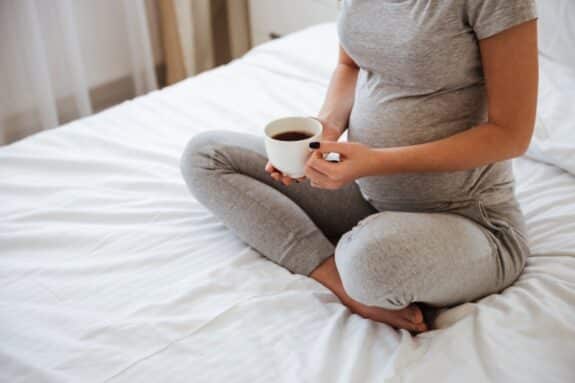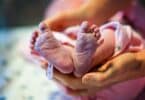How much caffeine is safe during pregnancy? This has been a question many moms-to-be have asked for decades.
Researchers in the Del Monte Institute for Neuroscience at the University of Rochester Medical Center (URMC) have found that caffeine consumed during pregnancy can change important brain pathways that could lead to behavioral problems later in life.
For their study, the ABCD team analyzed more than 9,000 brain scans of nine and ten-year-olds and revealed changes in the brain structure in children who were exposed to caffeine in utero.
“These are sort of small effects and it’s not causing horrendous psychiatric conditions, but it is causing minimal but noticeable behavioral issues that should make us consider long term effects of caffeine intake during pregnancy,” said John Foxe, Ph.D., director of the Del Monte Institute for Neuroscience, and principal investigator of the Adolescent Brain Cognitive Development or ABCD Study at the University of Rochester. “I suppose the outcome of this study will be a recommendation that any caffeine during pregnancy is probably not such a good idea.”
Researchers observed elevated behavioral issues, attention difficulties, and hyperactivity in these children.
“What makes this unique is that we have a biological pathway that looks different when you consume caffeine through pregnancy,” said Zachary Christensen, an M.D/Ph.D. candidate in the Medical Science Training Program and first author on the paper published in the journal Neuropharmacology. “Previous studies have shown that children perform differently on IQ tests, or they have different psychopathology, but that could also be related to demographics, so it’s hard to parse that out until you have something like a biomarker. This gives us a place to start future research to try to learn exactly when the change is occurring in the brain.”
Clear changes in how the white matter tracks were organized in children whose mothers reported they consumed caffeine during pregnancy.
Past studies have found that caffeine use while pregnant has been linked to negative pregnancy outcomes, specifically miscarriage, stillbirth, low birth weight, childhood acute leukemia, and childhood obesity.
A growing fetus does not have the ability to breakdown caffeine when it crosses the placenta.
The researchers were unable to determine if the impact of caffeine on the fetal brain varies from one trimester to the next, or when during gestation these structural changes occur.
“Current clinical guidelines already suggest limiting caffeine intake during pregnancy – no more than two normal cups of coffee a day,” Christensen said. “In the long term, we hope to develop better guidance for mothers, but in the meantime, they should ask their doctor as concerns arise.”







